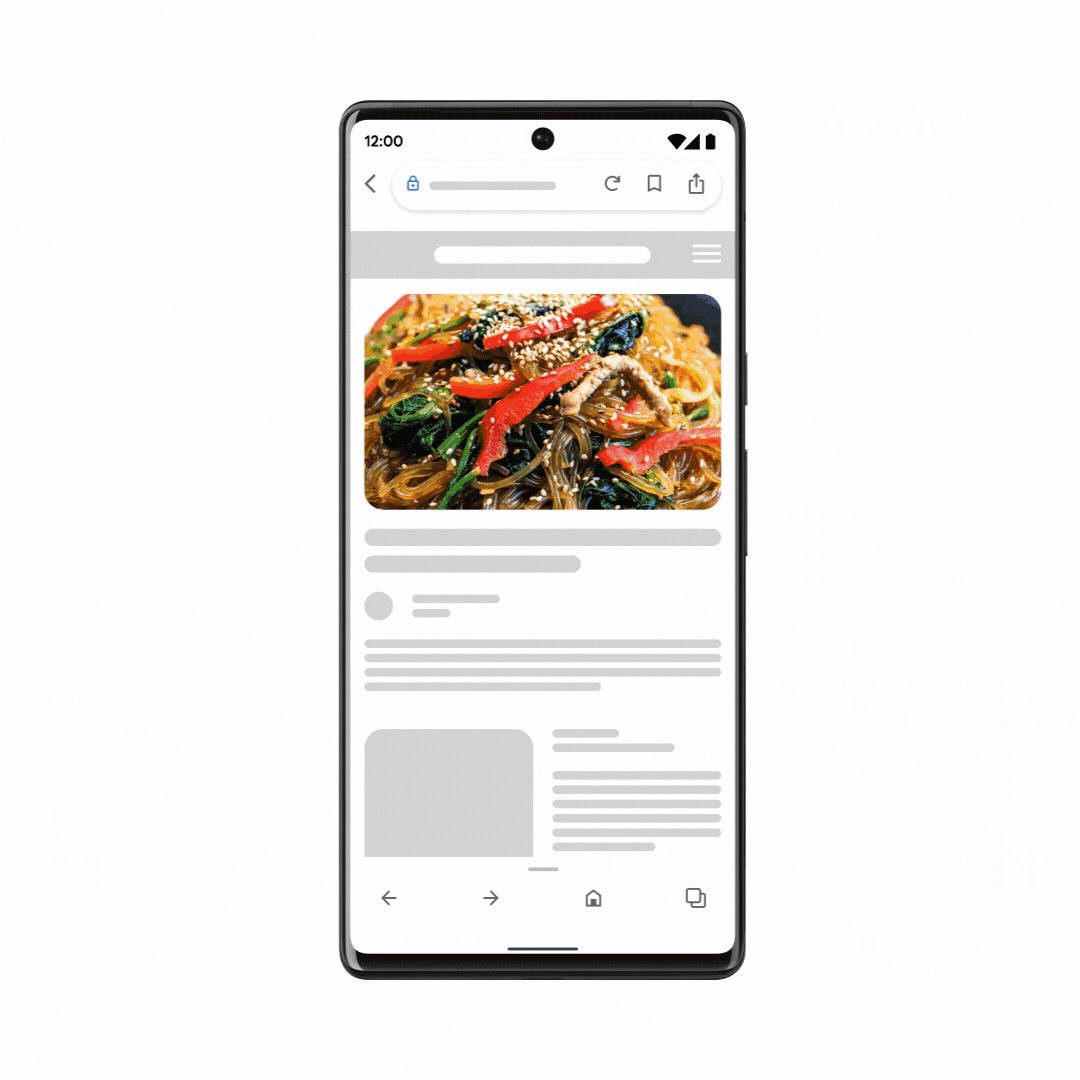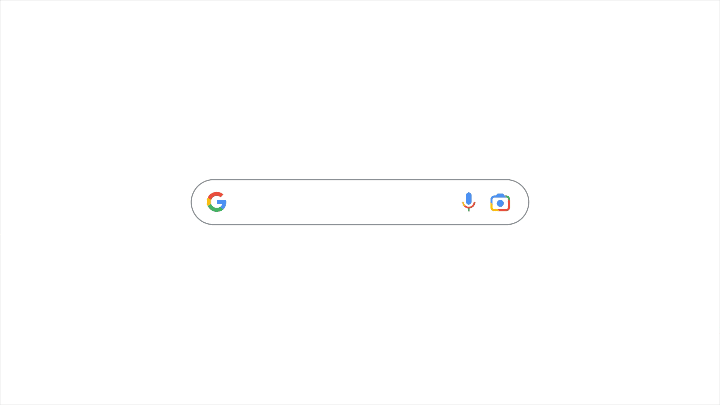In this week’s update, learn about new visual search features announced at Google I/O; Google’s aggressive review filtering and what to do about it; Meta’s push to bring short-form video to news; TikTok’s partnership with Foursquare; Google’s push for inclusive images; and a new feature showcasing questions in Google profiles.
Google Brings More Visual Capabilities to Local Search
Local search was a major theme at last week’s Google I/O conference, with several announcements emphasizing Google’s increasingly visual approach to the search experience in general and local search in particular. Among these announcements is the launch of Immersive View in Google Maps, slated to be live in five cities this year. Immersive View offers a computer generated 3D experience of landmarks and city streets which is based on Google Earth and Street View data. As demonstrated, Immersive View lets users explore outdoor and indoor spaces virtually, an experience that takes Apple Maps’ impressive 3D view one step further.
Also linking visual search with local use cases was the announcement that Multisearch – the recently launched feature that allows Google Lens users to add text to image-based queries – would support “near me” as a default search criteria. When the functionality goes live sometime this year, users will be able to type “near me” after capturing an image with Lens, and Google will show where the item depicted is available from local businesses.
Another feature augmenting the functionality of Google Lens will be “scene exploration,” which lets users point their phones at a scene where multiple objects are on display, such as a store shelf. In a blog post, Google describes scene exploration as offering the ability to “uncover insights across multiple objects in a scene at the same time,” for instance displaying nutrition information for a shelf of chocolate bars.
Source: Google
Google Is Filtering More Reviews Than Usual
Phil Rozek notes in a recent post that Google appears to have turned up the dial on review filtering in the last several weeks, removing reviews from publication in greater numbers than usual. Rozek observes that Google seems to alternate between long periods where reviews are rarely filtered and brief spurts of increased filtering, speculating that we may be in the middle of one of those periods now.
He offers several suggestions for what to do, and what not to do, if your business is confronted with this problem, noting that many businesses have reported losing several reviews recently, even reviews that were published years ago. Unfortunately, appealing directly to Google rarely works, and asking people to recreate removed reviews, or write a bunch of new ones, may place you in Google’s crosshairs again. However, Rozek has several smart ideas for encouraging the right kinds of reviews – those that are least likely to be filtered. For instance, he recommends users write reviews from home, given the longstanding practice on Google’s part of filtering reviews that come from the same IP address as the business. Rozek also suggests that uploading photos along with reviews increases the chances that the review will be filtered (given that it might be removed solely due to issues with the photo). Among several other suggestions, Rozek also recommends that businesses do not encourage reviewers to populate reviews with specific keywords, even though keywords in reviews are a known ranking factor. Patterns that may emerge from such recommendations will likely ring alarm bells with Google.
Meta Pushing News Organizations to Adopt Short-Form Video
As Mark Zuckerberg noted in a recent Meta earnings call, video, especially short-form video, is the format of the future for both Instagram, where Reels take up 20% of audience attention, and for Facebook, where as much as 50% of user time is spent watching videos. Now Meta is pushing news publishers to switch to short-form video as a primary format. The push comes as Meta is seeing engagement with news content decline on its platforms in the post-Trump era, even as the company has sought to create a more dedicated content segment with the News tab on Facebook. However, news publishers may be reluctant to pour resources into video just because Meta wants them to. Its relationship with publishers, many of whom have revenue sharing deals with the company, has been characterized by unfriendly negotiations, and Facebook has tried before to push news in the direction of video without much success. But it’s possible they will be forced to make a change as TikTok’s influence on the social media landscape grows.
TikTok Adds Foursquare Attribution for Advertisers
Speaking of TikTok, the popular social platform has announced a new partnership with Foursquare that represents a move toward location awareness. Foursquare will provide store attribution to TikTok advertisers, tracking how many viewers of ads on TikTok ending up visiting the store being advertised. Advertisers will also gain insight into how much they must spend to get viewers into stores, as well as what audiences they should target.
Despite the recent rise in privacy-based constraints such as the forced opt-in provisions of Apple’s App Tracking Transparency (ATT), Foursquare still enjoys strong partnerships with companies like Uber, Snapchat, and Twitter that make it possible to maintain a large database of user location data, built on top of the original Foursquare location platform.
Google’s Push for More Inclusive Images
In a move to make its image search results more diverse and inclusive, Google is announcing support for a new schema type called inclusive schema that will allow web developers to tag image content with attributes that indicate skin tone, hair color, and hair texture. Inclusive schema will become a ranking signal for images. Google’s ultimate goal, first articulated back in 2021, is to ensure that searches for terms like “beautiful skin,” “happy family,” and “professional hairstyles” return image results that are more broadly representative of multiple races and backgrounds. The inclusive schema makes use of a 10-shade scale of skin tones known as the Monk Skin Tone (MST) scale, intended to be more broadly representative of the true range of skin tones of U.S. residents than the current industry standards. (By contrast, Slack currently supports five skin tones.) Web developers who make use of the new schema standard to identify inclusive content will presumably see a ranking benefit. The MST scale will also power new search filters in Google Image Search, allowing users to refine results by skin tone.
Source: Google
Google Showcases Questions with “Others Are Asking”
Google has been featuring Q&A content in local profiles more prominently in recent months, with many profiles displaying prominent excerpts of Q&A content, sometimes linked to search intent. Now, some users are observing a prompt that seems designed to generate more answers to questions. This comes in the form of a carousel displayed in the questions tab for profiles in Google Maps with the title “Others are asking.” The carousel displays unanswered questions which users can tap a link to answer. Below the carousel are featured questions that have already been answered.
With our 2022 Localized Marketing Benchmark Report showing that multi-location brands only respond on average to about 7% of Google questions, this is one more reminder that businesses need to participate in the conversation at the local level.
Source: Khushal Bherwani / Search Engine Roundtable
Damian Rollison
Subscribe to Local Memo!
Signup to receive Local memo updates and the latest on localized marketing, delivered weekly to your inbox.


